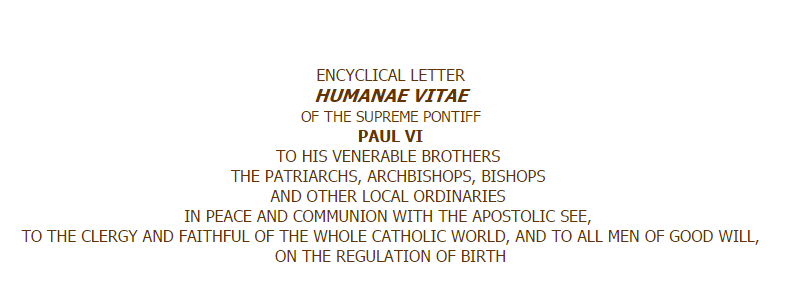Catholic Scholars’ Statement on the Ethics of Using Contraceptives
In preparation for the 50th anniversary of the publication of “Humanae Vitae: On the Regulation of Birth,” the Wijngaards Institute gathered an interdisciplinary task force of experts to re-assess the ethics of using contraception. The Statement below presents a summary of their work).
Its conclusions are based on interdisciplinary scholarship which can be verified independently. For that reason, we are submitting the Statement for wider world endorsement and have been invited to launch our Report at a UN-hosted meeting in New York on 20th September 2016.
Our goal is to encourage the Catholic hierarchy to reverse their stance against so called “artificial” contraceptives. To this end, we will make the Statement’s findings known to Catholic church officials and opinion leaders (e.g. bishops, priests, religious sisters, management and medical staff of Catholic health care facilities, Catholic social workers, journalists, etc.), as well as ordinary Catholics.
Our findings and theological materials will also be made available to all UN departments and development agencies who are trying to navigate the relationship between religious belief and women’s health as they work towards the UN Sustainable Development Goals.
Wijngaards Institute for Catholic Research, August 2016
Summary: The official papal teaching banning the use of “artificial” contraceptives for family planning is based on the belief that the biological “laws of conception” show that each and every act of sexual intercourse has procreation as their natural “finality” and “significance.” From such a belief, the moral requirement is inferred that couples engaging in sexual intercourse must always be open to procreation.
However, the vast majority of acts of sexual intercourse do not have the biological “capacity” for procreation, and therefore they cannot have procreation as their “finality” or “significance.”
As for the intention of the agents, the Bible identifies a variety of morally worthy non-conceptive motives for engaging in sexual intercourse. This is confirmed by the evolutionary biology of human reproduction, and sociology, among other disciplines.
The use of modern contraceptives can facilitate one or more of sexual intercourse’s non-conceptive meanings, as well as have additional morally worthy purposes – e.g. family planning, following the requirements of responsible parenthood (HV §10).
Therefore, the decision to use modern contraceptives can be taken for a variety of morally worthy motives, and so it can be responsible and ethical.
For the extended argument on which this summary is based, click here.
